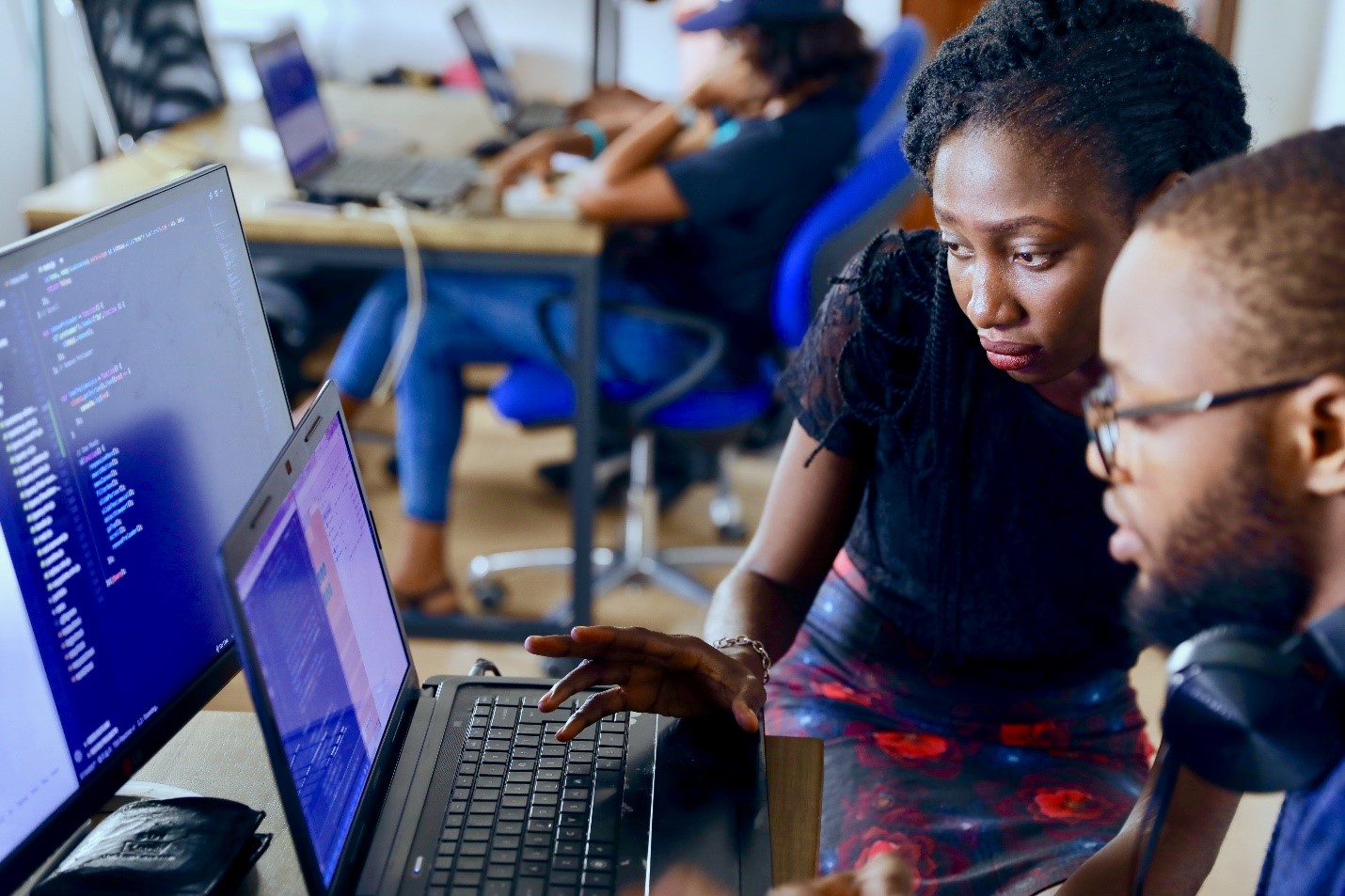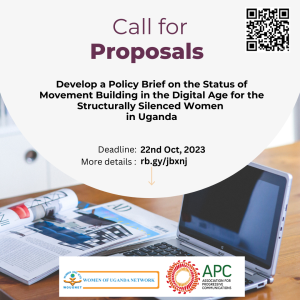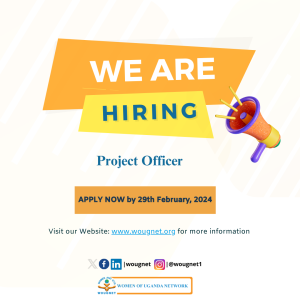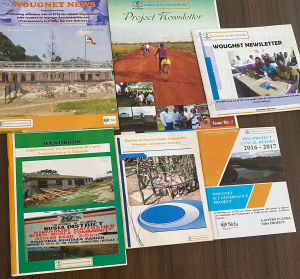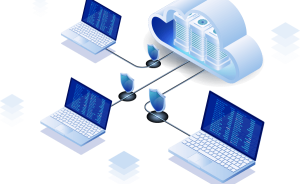Introduction
The global digital gender divide is keeping hundreds of millions of women and girls from fully participating and contributing online with almost half of the world population still having no access to the internet. The number of women using the internet globally is 48% compared to 58% of men implying that there is a 17% internet user gap. Uganda is one of the African countries with the largest gender gap according to the 2020 new study by the World Wide Web Foundation for instance men are 43% more likely than women to use the internet in Uganda.
Although 27.9% of men as compared to 19.2 % of women are having access to the internet in Uganda, 19.2 % of women who are online often experiencing a lower quality of internet services than men. There is a hidden digital gender divide that lies beyond the gap in internet access. In case all these are not well understood, including the way women are prevented from using the internet fully, then the achievement of digital equality will still be a struggle for Uganda and the whole world. The digital gender divide prevents millions of girls and women from accessing the full benefits of technology and may negatively affect the achievement of the 2030 sustainable development goals of enhancing gender equality in all its spheres.
For many years, organizations such as the World Wide Web Foundation (WWWF), Women of Uganda Network (WOUGNET), the Centre for Multilateral Affairs (CfMA) and regulatory bodies i.e. Uganda Communications Commission (UCC) has been working together to improve the status of women online in Uganda – specifically to ensure that women’s rights online are protected, upheld, and promoted in the digital space just as it should be in the offline environment. It has already been widely recognized throughout the past decades that the inclusion of women is vital for the shift towards development and poverty eradication.
Recently, WOUGNET and the CfMA organized an exhilarating discussion on closing the gender digital divide in Uganda, this followed the report launch, “Women’s Rights Online: closing the digital gender gap for a more equal world”. As part of the activities for the Women Rights Online report launch on October 12th, 2020, WOUGNET and the CfMA organized a Twitter chat. This tweet chat was preceded by a webinar discussion on October 14tth, 2020 to further explore, highlight and interrogate the key issues and findings that emanated from the research by the World Wide Web Foundation and Uganda Communications Commission.
Understanding the Digital Gender Divide
During the Twitter chat, netizens shared their perspectives and understanding of the digital gender divide such as;
“Reflecting the inequalities between men & women in internet access and use. Though often understood as the gap between the number of men and women who can use the internet, the digital gender divide goes beyond access. A hidden digital gender divide lies beyond the gap in internet access. If we don’t understand all the ways women are prevented from using the internet fully, we won’t achieve digital equality.”
“Inequalities between women and men in regard to information access and communications technologies.”
Barriers to Women’s Access to Digital platforms
Even where women are closing the gap on basic internet access, they face additional barriers to fully participate online such as; poverty and illiteracy, poor infrastructure, lack of appropriate devices to use and access the internet, and poor network connectivity in rural areas where the majority of them stay. They also face online harassment, have low education levels and this limits their knowledge on the vitality of tech, among others. Each of these barriers leaves the web with an internet that does not work equally well for women and men. Some of the barriers participants mentioned during the Twitter chat conversation included;
“…Women face multiple barriers – sometimes exacerbated by cultural and stereotypical perceptions but while basic access is improving, there is a high cost of the internet, devices are poor, data is expensive & digital skills are lacking.”
“The triple role burden on women corrupts their time that they could have used that is productive, reproductive, and community role burden.”
More to this, Chenai Chair, the Research Manager: Gender and Digital Rights at Web Foundation, emphasized that meaningful access, usage, and connectivity; digital skills and content; Internet access and economic opportunities; Perception of rights and Online safety were the key issues examined in the 2020 study.
During the webinar, Geoffrey Ssegendo who is the current Head of Research & Service Development at UCC pointed out that Article 33 of the 1995 Constitution of Uganda provides for the rights of women and it clearly indicates that women shall be given equal opportunity in political, economic and social activities with the men by providing services and facilities that are necessary. Additionally, laws and policies have been put in place through Ministries, Departments, and Agencies such as Uganda Gender Policy 2017, Domestic Violence Act of 2010, Female Genital Mutilation Act of 2015, and the National Action Plan on women of 2007.
How limited or no internet access affects women and girls’ online rights
In Uganda, women, and girls still face limited access to the internet which affects their access to information yet it’s their fundamental human right. Limited internet access, therefore, affects their economic decisions, health, education and social interaction although the internet offers significant opportunities for self-growth and their empowerment. The exclusion of women online threatens everybody’s prosperity, opportunity, and well-being which greatly impacts on their ability to exercise their rights and limits their opportunities to create an online space that works for them.
Two participants said this during the Twitter conversations;
“limited or no access to the internet excludes women and girls from joining online movements that are driving change. we all need to join these online movements to create change for ourselves and for the people around us.”
“In the context of COVID-19, we saw a great rise in misinformation and disinformation, women and girls were vulnerable because of their limited access and use of the internet.”
How Over the Top (OTT) taxes undermined internet access for Ugandans?
Also, Over The Top taxes are disempowering and further relegates women and girls to the bottom – in terms of access, use and utilization of ICT and ICT based services – further widening the Gender Digital Divide in Uganda. High taxes such as Over the Top taxes on digital services remain a stumbling block to digital inclusion not only to basic social media access but also access for mobile money usage, digital banking yet these are services where more women in business are involved. Chenai Chair, during the webinar, said that affordability of data emerged as the biggest challenge with 25% of respondents noting it. However, she additionally mentioned a lack of digital skills and time as some of the issues. She further noted that general internet access is 23.2% in Uganda with a gender gap of 19.2%women and 27% men.
Lillian Nalwoga, the former Internet Society Uganda Chapter (ISOC Uganda) President noted that COVID-19 has shown everyone that life is dependent on technology although knowing the quality of technology especially the internet is important. “Online safety is a very big obstacle to women’s online privacy. This deters women from being online and the laws are not supportive of women’s rights,” she added.
Women’s concerns over online privacy
Despite all these challenges, the study found out that women were more concerned about their privacy than men and they cannot allow their data to be used for any purpose. For instance, women in Uganda do not freely express themselves online because of fear of being called all sorts of names by the public. Also, a woman raising her voice threatens their safety both online and offline.

Photo by WOUGNET
Policy options to close the gender digital divide in Uganda
In the case of Uganda where we have a gender digital gap of 42%, more investment is needed for infrastructure development and building capacity of women and girls to address the question of internet access and affordability. Geoffrey Ssegendo pointed out during the webinar that in 2014, the UCC carried out research on women’s access and usage of ICT and the findings indicated that only 6 percent of women were online. “The findings of this research provided evidence that women are being marginalized yet they constitute a significant segment of the population in Uganda,” he added.
Gender-responsive policies and approaches are necessary to bridge the gender digital gap by developing ethical standards and digital frameworks to eliminate inherent gender biases in the development of digital technologies, and develop sectoral policies that support women’s inclusion in the production, design, and governance of digital technologies. For example, Gender data should be made available to help organizations like WOUGNET to design strategies for empowering women and girls. However initiatives by Uganda Communications Commission to close the gender digital divide such as Rural Communication Development Fund (RCDF), ICT Skills Development intervention, teacher retooling intervention, among others should be known to civil society organizations (CSOs) working on gender and digital rights to further bridge the gender digital divide in Uganda with additional implementation of community networks by the government and CSOs. This will greatly help Uganda to achieve its digital vision 2040 in recognizing ICT as a critical driver of economic transformation from a peasant to a modern and prosperous country, that narrows the digital gender gap.
Cover Photo: NESA by Makers on Unsplash
Written by Sandra Aceng, Peace Oliver Amuge and Isaac Amuku

